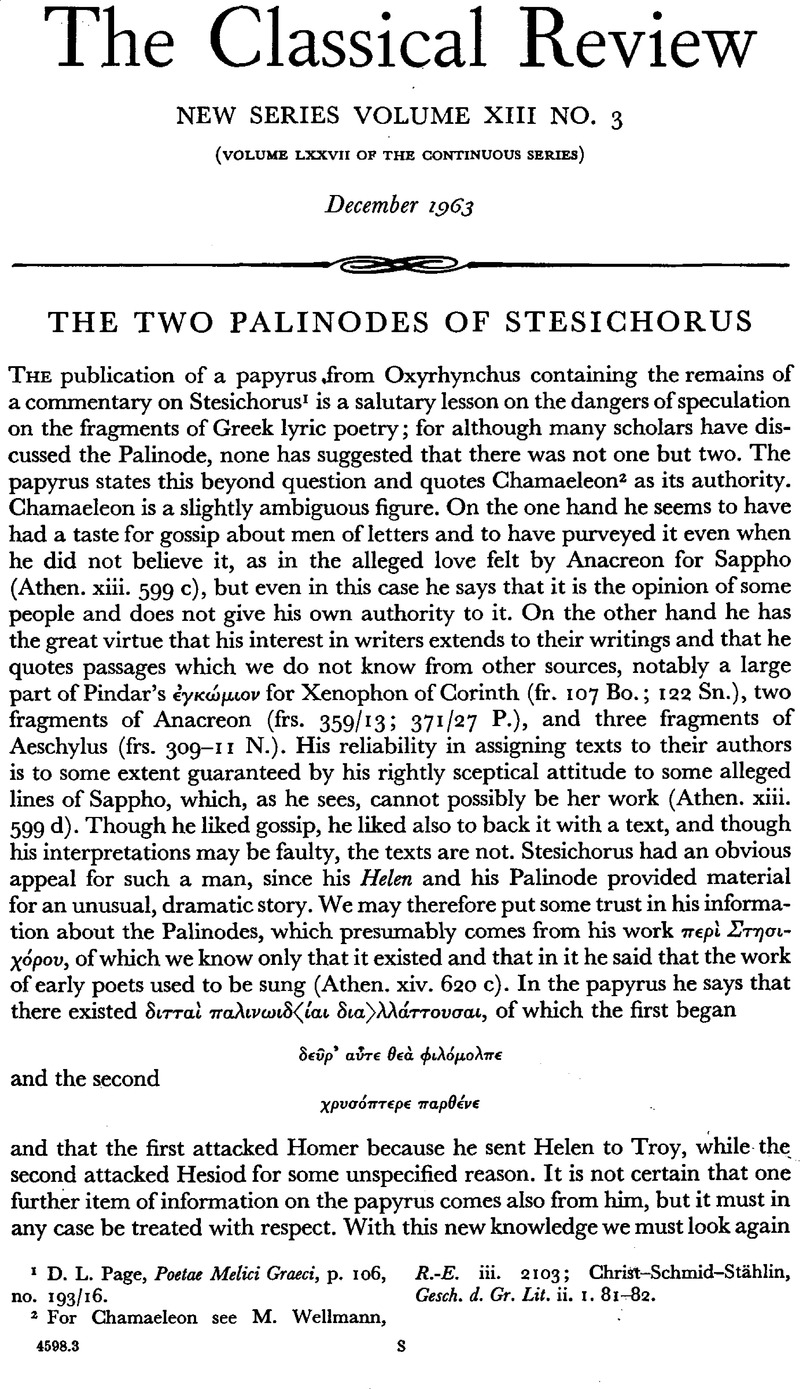No CrossRef data available.
Published online by Cambridge University Press: 27 February 2009

page 245 note 1 Page, D. L., Poetae Melici Graeci, p. 106, no. 193/16.Google Scholar
page 245 note 2 For Chamaeleon see Wellmann, M., R.-E. iii. 2103Google Scholar; Christ–Schmid–Stählin, , Gesch. d. Gr. Lit. ii. I. 81–82.Google Scholar
page 246 note 1 Bergk, , P.L.G. 4, p. 223.Google Scholar
page 246 note 2 I made this mistake in my Greek Lyric Poetry 2, p. 112. See also Vürtheim, J., Stesichoros' Fragmente und Biographie, p. 59.Google Scholar
page 247 note 1 Both points were first made by Bergk, , P.L.G. 4, p. 223.Google Scholar
page 248 note 1 An ample list may be found in Kleine, O. F., Stesichori Himerensis Fragmenta (Berlin, 1828), pp. 95–96, and this is completed by Bergk, pp. 218–19.Google Scholar
page 249 note 1 Wilamowitz, , Sappho und Simonides, p. 241, n. 1Google Scholar; Schmid–Stählin, , Gesch. d. gr. Lit. i. I. 476Google Scholar; Hopfner, T., Orient und griechische Philosophie (Leipzig, 1925), p. 50, ascribes the story to the influence of Egyptian priests.Google Scholar
page 249 note 2 The fragment is ascribed to the Helen by Bergk, , P.L.G. 4, p. 215Google Scholar. See Vürtheim, pp. 60–61.
page 249 note 3 von Premerstein, A., Philologus, Iv (1896), 641Google Scholar; Bowra, p. 109.
page 249 note 4 Pisani, V., Riv. Fil., N.S. vi (1928), 476 ff.Google Scholar
page 249 note 5 Preuss, E., De Euripidis Helena (Diss. Leipzig, 1911), pp. 48 ff.Google Scholar
page 249 note 6 Bowra, pp. 109–10.
page 249 note 7 Vürtheim, pp. 67 ff.
page 251 note 1 That not only Helen but Menelaus was honoured in Egypt follows from Plut. Mor. 857 b, where, speaking of a tale told against Menelaus, he continues ⋯λλ⋯ πολλα⋯μ⋯ν Ἑλ⋯νης πολλα⋯ δ⋯ Μενεδ⋯ου τιμα⋯ διαφυλ⋯ττονται παρ᾽ αὐτοῖς, but this looks as if it referred to his own time. For Helen in Egypt see Visser, W. J. D., Götter und Kulte, pp. 19, 84.Google Scholar
page 251 note 2 The story was also told by Euphorion (fr. 90 Powell), Alexander Aetolus (fr. 12 Powell), and Apollodorus, Bibl. iii. 10. 7.